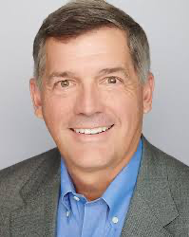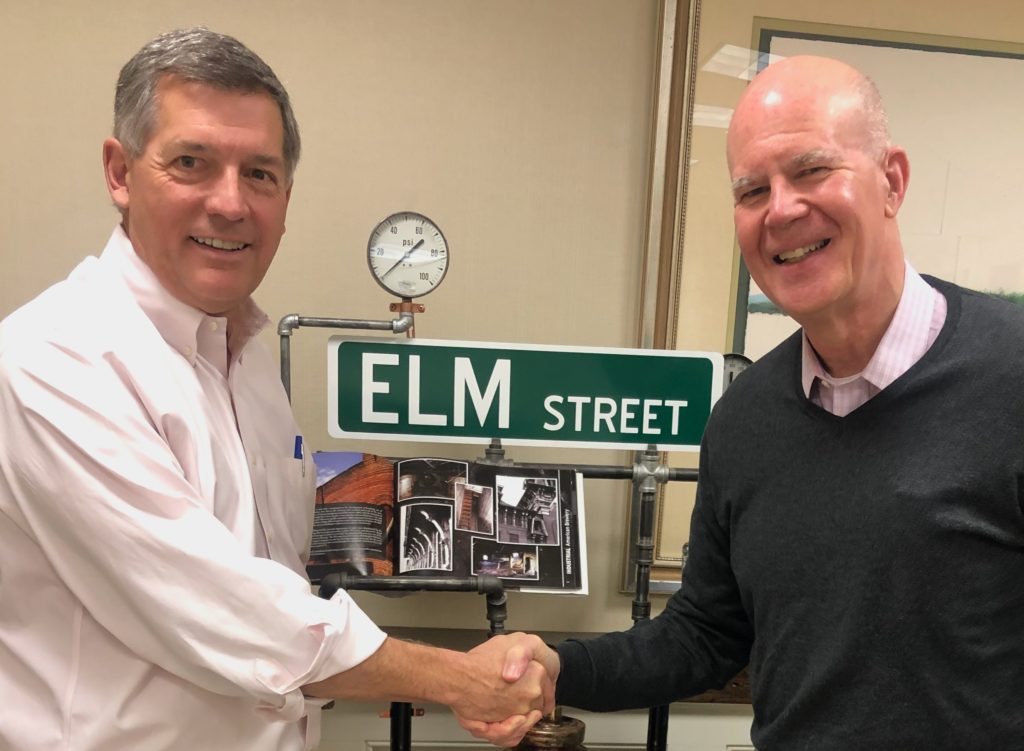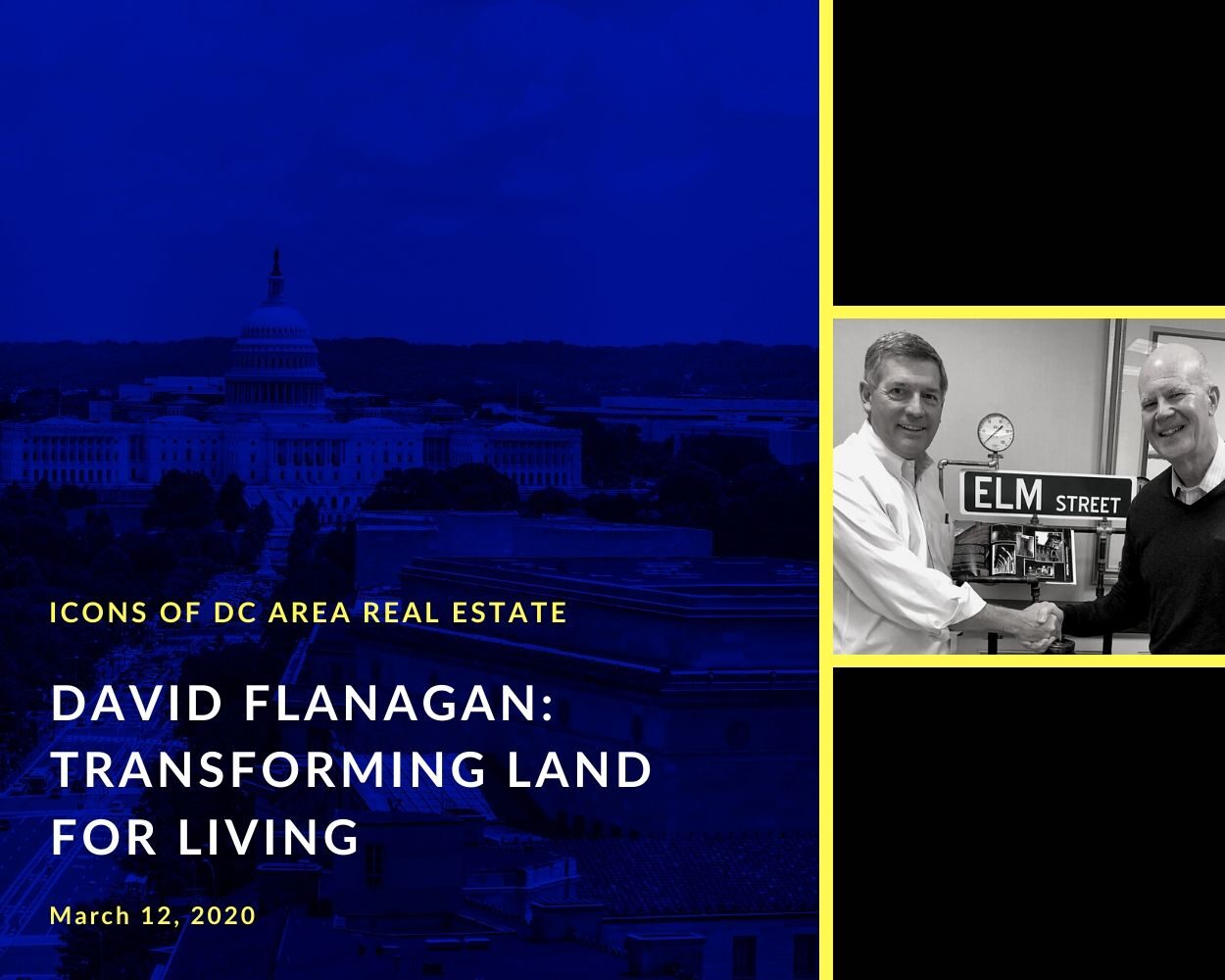

Bio
David Flanagan is a Principal and President of Elm Street Development, Inc., a privately held land development firm operating in the Washington/Baltimore area. Elm Street has developed over 53,000 residential building lots over the past 41 years for sale to homebuilders. Flanagan is also a Principal and Director of Craftmark Homes, a homebuilding company, and Legend Management, an apartment management company. He is on the Advisory Board for ULI Washington.
Prior to joining Elm Street Development, Flanagan graduated from Georgia Tech with a Bachelors of Industrial Engineering degree and received an MBA from the University of North Carolina.

Show Notes
David and I met in the late 1990s when I was a mortgage banker and learned about his new apartment business called Elms. In meeting with him I sensed a strong work ethic and discipline, yet a bold sense of willingness to take risk. This has played out well as he has built the leading land development firm in the DMV with over 53,000 residential lots/units developed over his 41 year career. He is perhaps the most prolific “deal junkie” I have met who boasts of his being the most active transactional company (perhaps other than JBG Smith) in the region. This deal volume has honed his skills in measuring and managing risk by assuming that the process is a long game and while losses are inevitable, if he plays it right he will win out eventually. Below are highlights of our wide ranging discussion:
Background and Education
- Role at Elm Street- Give support to people leading projects and is a “cheerleader” for company employees (2:30)
- Born in Mississippi and grew up in Wilmington, Delaware- Dad worked for DuPont (3:30)
- Influences from Parents- Solid middle class (“Leave it to Beaver” family) (4:15)
- Dad was in research for DuPont (Physics background) (4:40)Large company did not fit for David- Wanted smaller entrepreneurial setting for employment (5:10)
- Grandparents- Their interests as farmers brought him to land and entrepreneurial interest (5:30)
- Georgia Tech- Worked while in school (coop), Industrial Engineering degree (6:45)Goal to go to graduate business school afterward (7:45)
- UNC Grad. Business School- Went immediately to business school with financial help (8:30)
- Watching Atlanta development activity while at Georgia Tech inspired his real estate interest (9:12)“A Man in Full” reference (9:45)
- Didn’t want to go to Wall Street (10:30)
- Wanted to do “all aspects of business” and real estate offered that opportunity- marketing, finance, operations, etc. (10:45)
- While at UNC took courses in real estate (11:45)
Career Trajectory
- Right out of Grad School- Met Steve Cumbie and Dwight Schar in Fall, 1977 and set up NV Land and offered David a job (12:30)Began a project in Richmond selling finished lots for $9,500 each to Ryland Homes (13:20)
- Left him completely on his own to do a project himself (14:30)
- Built his own “training” by doing it himself (15:15)
- Production training he learned then he now implements (16:00)
- David was 24 when he took on his first land development project (16:40)
- Bill Moran and David became partners in NV Land (17:10)
- Dwight Schar grew company to NV Homes and then acquired Ryan Homes and then went public with NVR (18:30)
- Elm Street Development was a name change from NV Land when it was divested from NVR (19:00)
- NVR is still Elm Street’s biggest customer (19:15)
- NVR Development was set up within NVR and caused NVR to go bankrupt in the early 1990s but then pulled away from owning land (19:45)
- NVR has minimal risk in land now (21:00)
- Other homebuilders take on more land risk (21:15)
- Elm Street absorbs risk and gets a premium from NVR and other homebuilders for their land holding (21:30)
- Elm Street strategy of balancing risk- 10 yr. cycle–2 yrs. of great business, 6 yrs. of steady business and 2 yrs. of terrible business on average (23:00)
- Used internal equity primarily and was fortunate to self finance most projects (24:15)Limited growth to projects that could be managed even if some unsuccessful (24:58)
- Good balance sheet helped with raising capital (26:30)
- 1991 was so difficult in that most of the lenders disappeared and credit was eliminated for almost any land development and/or homebuilding activity (28:00)
- Largest transfer of wealth in country’s history (28:50)
- Last recession was not as drastic and was more “controlled” (27:25)
- Elm Street advised contractors and employees to stay the course and not get paid until economy got better (29:30)Honest recognition of the situation gave people encouragement to keep going (30:40)
- Proud of relationships continuing to keep going during down cycle
- Earned the reputation of performing on what you say you can do
- Not be in that position again and shifted into income property businesses as a result
- Cash flow is king! Have diversification into income properties that throws off cash through cycles as long as tenants survive (31:30)
- Craftmark Homes gave opportunities to exit land positions
- Expanding into homebuilding and apartments to diversify (32:00)
- Also diversify in product types…townhouses, singles, apartments, in bound and out bound locations, etc. (33:20)
- Contract for raw land primarily…entitlement is expertise. Entitlement is an art. (34:20)
- If it is already entitled the national homebuilders usually win the deal on bids (35:15)
- National homebuilders buy entitled land and finish lots themselves (35:45)
- Size and market positioning give them a strong sense of valuation on land (36:20)
- Most landowners wait until entitlements are completed to sell to take advantage of pricing unless it doesn’t matter (37:00)
- “Worst land opportunities in his 40+ yr. career” Only opportunities now are already improved for “covered land plays” or parking lots (37:30)
- Acquiring existing properties for redevelopment instead of “greenfield” opportunities (38:20)
- Acquired an office building in Merrifield (39:30)
- “Worried more about the next opportunity” (40:30)
- Zoning changes have affected ratio of less single family, more townhouses and multifamily (41:20)
- Adapting to more of a multifamily platform (42:00)
- Done so many deals and learned a lot about how deals work and with every failure have learned not to do something again (43:15)
- Comfortable taking longer hold risk and lead time on entitlement- a competitive advantage (44:20)
- Look for uncompetitive areas (45:00)
- Core business is still feeding the national builders (45:45)
- 20% of business is multifamily now (46:00)
Government Relations
- Government relationships good since Elm Street has been around a long time and keeps their word (47:00)Finish situations that have “gone bad” (47:40)
- Elm Street brand is to “complete what they commit to do” (48:00)
- Land development is “whipping boy” for government in creating more infrastructure (48:50)Some Counties have moratoriums in place to stop housing (49:30)
- Some Counties want more housing (49:50)
- Cycle since last recession is too long and elections have stimulated halting development (50:40)
Company Strategy
- Organizing land development company- divided geographically and each group needs to be generalists and do everything at their regional levels (51:40)
- Intellectual horsepower, curiosity, “right personality”, wanted “fun” people- not jerks. (53:00)
- Business is not “rocket science” have people that are honest and know the right thing to do (54:00)
- Shares equity with leaders in firm- compensation to reward the “best” with success with people’s results individual project success and who was involved in those projects (55:40)
- Working on 50-60 projects going to keep enterprise going- allow project managers considerable opportunities to make decisions and mistakes (57:30)Experience level of leadership allows for latitude and retention is very strong (58:30)
- Tenure of employees 20-30 years with Elm Street (59:10)
- Need to go through recession to understand what poor decisions or bad luck on deals mean (59:30)
- More losses in land development (1:00:15)
- Why not go into the highest risk/reward and be the best at it and be successful? (1:01:00)
Case Study & Personal Philosophy
- Clarksburg Town Center story– Awkward time for MoCo planning staff. Newland realized that they could not fix project. Attracted Elm Street to project who paid $1 for the project after settlement with homeowners. (1:05:30)
- Elm Street “fixed” the project and reinvigorated it to the point where the last 200 homes are finishing and the commercial portion is closer to finishing (1:07:00)
- Not many other firms could have finished (1:09:20)
- Personal philosophies
- Wanted to keep company local and allow for jobs within 2 hrs. of office to commit to family balance (1:10:15)
- Two sons work at Elm Street (1:11:00)
- Give back to industry (homebuilders, ULI, associations) (1:11:15)
- Universities- Georgia Tech and UNC real estate and advisory boards (1:12:19)
- Bring expertise to boards with experience (1:12:40)
- Biggest Win- 1978- Learned where he would work, people he worked with, and whom he would marry (1:13:15)
- Losses- Financial losses are part of the business (1:14:20)
- 91-92 Recession where and was a “gut check” punch (1:15:00)
- 1982 interest rates- 24.5% were very difficult (1:15:40)
- He had to lay people off in 1991-2 and try to carefully hire so he does not have to lay people off (1:16:30)
- Surprises- Success of projects (1:17:45)
- “We aren’t as smart as people think we are in good times and not as dumb as we are during tough times” (1:18:10)
- Odd to accept losses and failures (1:18:55)
- Having too much fun to retire- Industry is good for humanity (1:19:40)
- No plan to leave as long as he has his health (1:20:00)
- Biggest Missed Opportunity- When NVR came out of bankruptcy, buy as much as he could when its public company had gone public (1:21:00)
- Looked around in 1982 when rates were high and he liked the people he was working with (1:22:15)
- Sons both worked elsewhere before coming to Elm Street (1:23:00)
- Not sure I could tell a relative to go into the idiotic business of land development (1:23:30)
- Every recession is different and it is never boring (1:24:15)
- Real estate is a great industry- much better as an industry (1:24:50)
- Professional and high integrity business now (1:25:00)
- Level of professionalism is better than ever and is a lot of fun (1:25:40)
- Really enjoys the daily challenges (1:26:00)
- Recognizes that the housing need is critical and the practitioners need to address it
- Make an impact in the world

